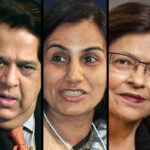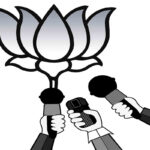- Cover Story
- Governance
- Globe Scan
- Corruption
- State Scan
- Talk Time
- Cover Story
- Governance
- Globe Scan
- Corruption
- State Scan
- Talk Time
Recent Posts
© Copyright 2007 - 2023 Gfiles India. All rights reserved powered by Creative Web INC. Anil Tyagi - Editor GfilesWritten by Anil Tyagi
Anil Tyagi - Editor GfilesWritten by Anil TyagiCOVID-19 has devastated us socially, mentally, physically, and economically. It has also exposed the instability and inefficacy of the governance system. In ‘God’s Own Country’, the policy makers revealed that they lacked the wherewithal to protect their citizens during an extreme and unforeseen calamity. The reverse exodus of millions of poor migrants—from cities to villages—led to the bitter realisation that the country is vertically divided between the haves and have-nots. Almost 30 per cent of the population was on the highways, and walked hundreds of kilometres to reach their homes. A few died on the way; we have no idea how many got infected by Covid-19 and other viruses. A few experts, like renowned epidemiologist Jayapraksh Muliyil, contend that half of India’s 1.37 billion people will finally contract the disease.
Indians are in a fix. Should they save their lives, or livelihoods? Most have decided in favour of the latter as urban streets and roads get crowded by the day. Prime Minister Narendra Modi gave several messages over the past few months— “Jaan hai toh jahaan hai” (only if there is life there will be livelihood), “Jaan bhi Jahaan bhi” (lives and livelihoods matter equally), “Jaan se lekar jag tak” (from an individual to humanity), and Atmanirbhar Bharat Abhiyan (Self-reliant India Mission). Most of us are unable to decipher the coded language and find it difficult to relate it to reality.
According to the Centre for Monitoring Indian Economy, 140 million Indians lost their jobs during the various lockdowns. More than 45 per cent of the households reported a decline in incomes this year. This is the official data. One has no idea of the adverse situation in the unorganised sector, and among marginalised farmers. As per Acuité Ratings, the Indian economy possibly lost `32,000 crore (US$4.5 billion) every day during the first 21 days of the complete lockdowns. Raghuram Rajan, the former RBI Governor, maintained that the pandemic may just be the “greatest emergency since Independence” in India. Former Chief Economic Advisor Arvind Subramanian said that India would need `10 trillion ($140 billion) to overcome the economic contraction. Although the government announced what seems like a huge stimulus package, the actual expenditure is much less. The treasury is empty; the Emperor seems to have no clothes.
Clearly, we live in a country that’s divided along several lines—one of them now is economic. There is an India, which lives in the cities, owns computers, transport, and smart phones, and studies in quality schools. It can speak English, has access to health facilities, and manages three square meals a day. The other is Bharat, which lives in the villages, and does not have material comforts, or even the basic amenities like health, food, and education. Those who are in governance are unable to decide whether they should focus on India or Bharat. This is the biggest policy paradox, an insurmountable challenge whose solution is crucial.
In fact, the current debate is whether we need to transform and change our governance system. More importantly, were we wrong in choosing the wrong socio economic model in 1991. Instead of growth-driven development, which was city centric, we could have focused more on the 640,867 villages, along with the semi urban areas. We had a ready model to follow. The father of the nation Mohandas Karamchand Gandhi advocated that we need to build self-reliant villages as the basis of a free democracy. Even RSS’ top thinker Nanaji Deshmukh was the votary of village development. Sops and benefits like MNREGA may help the rural workforce avoid starvation and keep up a minimum standard of life. But, in the long run, such welfare schemes aggravate the situation, avoid the problem, and only lead to temporary relief. We can still make it happen; still take a U-Turn and focus on a model founded on ‘Village Republic’, which was visualised by Gandhi. The fact is that India cannot progress without Bharat.
Anil Tyagi
editor@gfilesindia.comRecent Posts
Related Articles
From the EditorFrom the Editor
Written by Anil Tyagi COVID-19 is a virus, a physical being, howsoever miniscule,...
ByAnil TyagiMarch 4, 2020From the EditorFrom the Editor
Written by Anil Tyagi This is another face of capitalism, albeit an ugly...
ByAnil TyagiFebruary 5, 2020From the EditorFrom the Editor
Written by Anil Tyagi WHAT is governance? In modern parlance, it implies a...
ByAnil TyagiJanuary 7, 2020From the EditorFrom the Editor
Written by Anil Tyagi THERE are individuals who epitomise a year. There are...
ByAnil TyagiDecember 9, 2019 - Governance
- Governance



























































